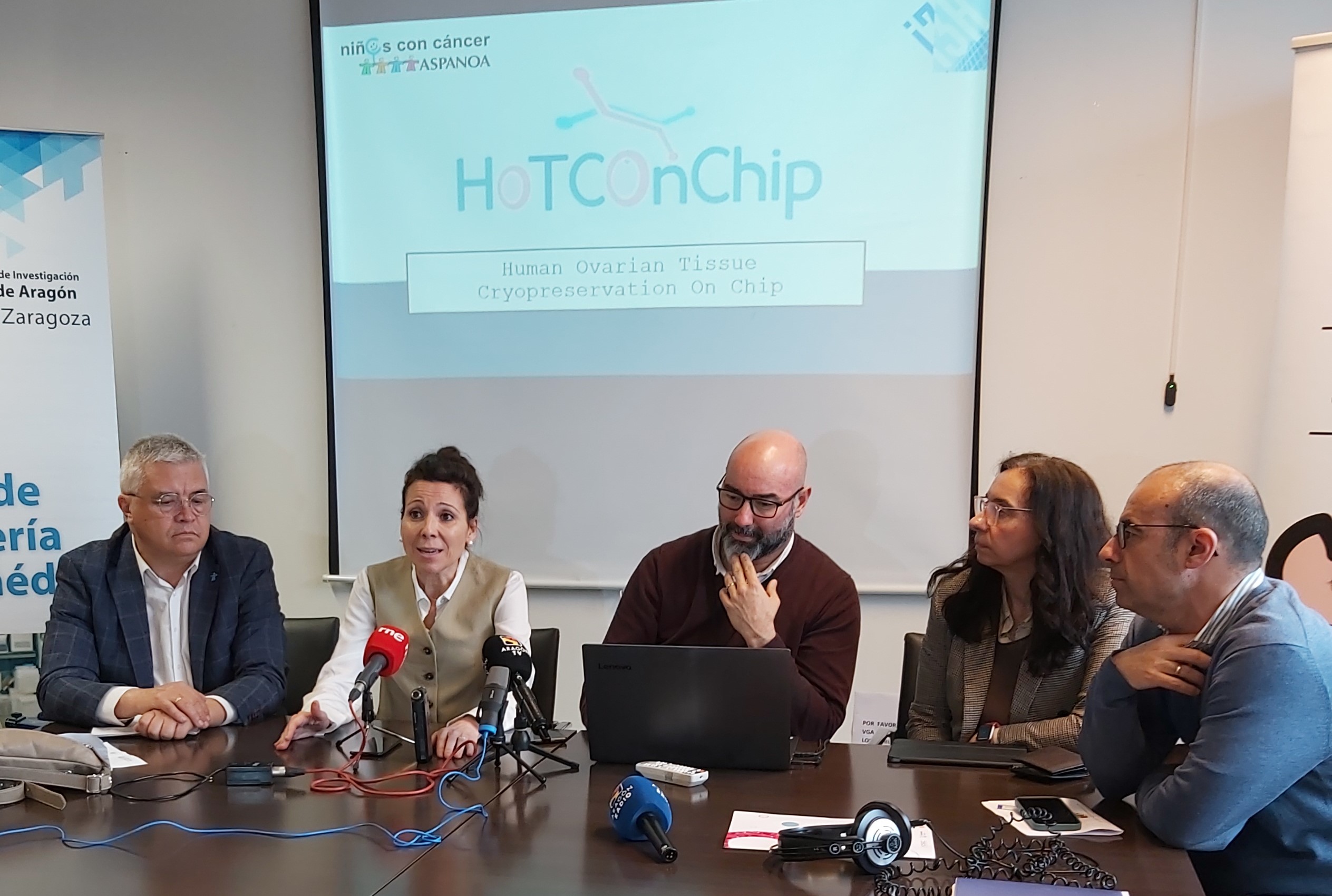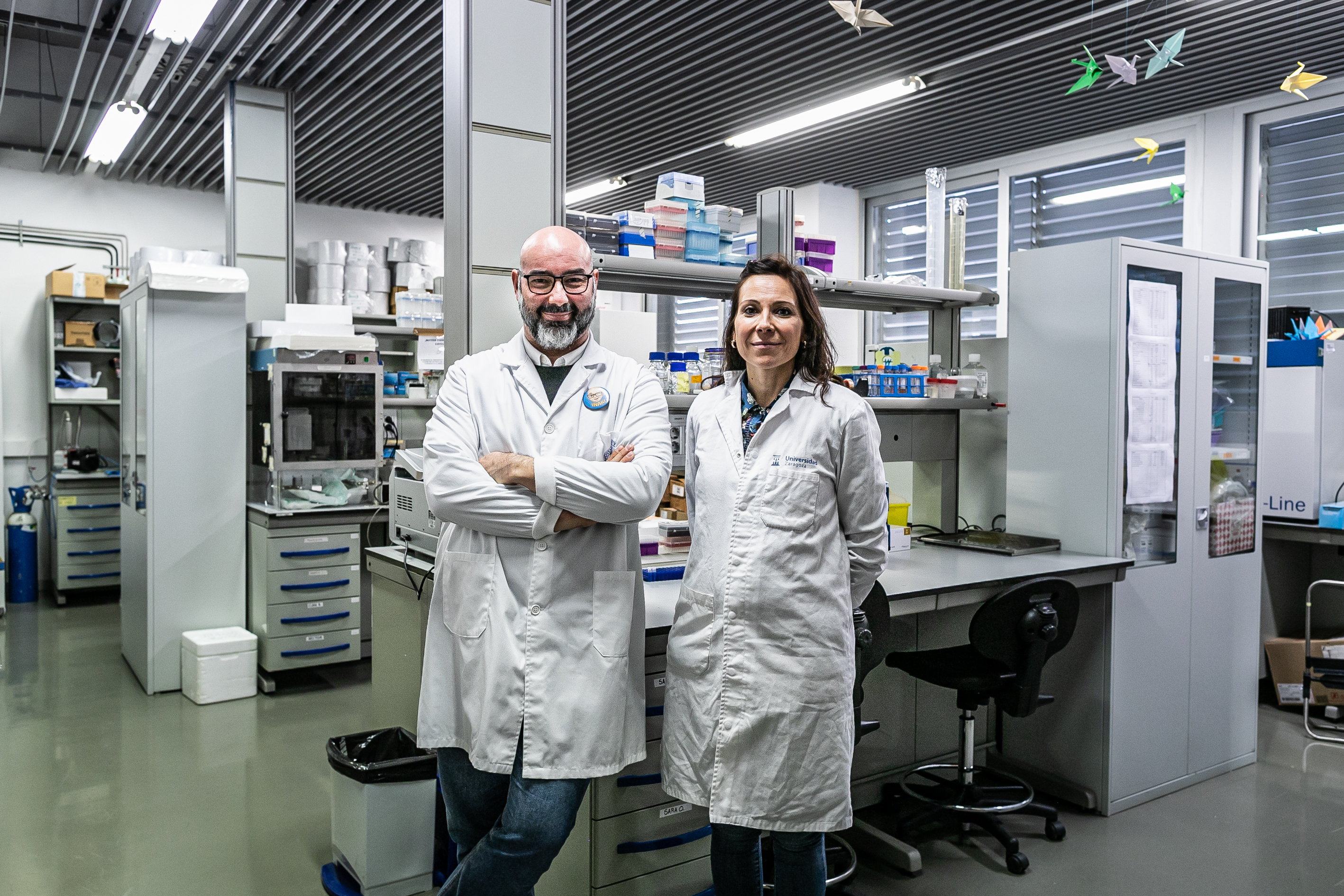Roughly 30% of girls who survive childhood cancer face significant difficulties in becoming mothers later on. These fertility problems arise from the aggressive treatments they undergo to cure the disease, especially chemotherapy and radiation therapy. Therefore, the Aragon Engineering Research Institute (I3A) has just launched a project to improve the preservation of ovarian tissue in girls with cancer, as part of the Impulse Program with Aspanoa.
The research is led by scientists Clara Malo and Iñaki Ochoa, from the TME Lab research group at I3A, and is being initiated thanks to funding from Aspanoa, specifically through the Chair that this association holds with the University of Zaragoza for childhood cancer research.
Ovarian tissue preservation is still carried out in few hospitals in Spain because it is a pioneering technique and there is still much to study. “If the girl has already started ovulating, it is enough to freeze her eggs. But if the girl has not yet begun the reproductive cycle, the only option is ovarian tissue preservation,” explain the scientists.
The ovarian tissue currently extracted from girls with cancer is frozen for later transplantation. However, in this process, 50% of the follicles or reproductive units are lost. Malo and Ochoa aim to improve these poor figures through their project, which involves studying current freezing processes – such as the percentage of serum used or the suitability of the biofreezer currently used – and, at the same time, developing a prototype of a commercial instrument that allows automation of the process. They will co-develop this latter project with the company Beonchip, a spin-off from the TME Lab, led by Rosa Monge.
In fact, the researchers believe that a significant part of the poor preservation may be due to the current technique requiring a lot of manipulation. “We are experts in microfluidics and we will use this knowledge to automate the process, so that any technician can perform ovarian tissue preservation with minimal manipulation possible, having total control over the environment, and making it as similar as possible to the characteristics of a uterus to favor its preservation,” they explain.
The researchers have already conducted initial trials with sheep, whose ovarian tissue is very similar to humans, and in this project, they will use discarded tissue from adult patients to optimize the technique before conducting final trials with pediatric tissue.
This is the project they are starting now, but in the longer term, they would like to test if it is possible to develop mature eggs in the laboratory by artificially growing the follicles from the ovarian tissue extracted from the girl. “This would allow fertilizing the egg externally with the future father’s sperm, and then directly transferring the embryo to the mother without the need for a second intervention to transplant the ovarian tissue,” they point out.
Clara Malo and Iñaki Ochoa note that they are very excited that their project is being supported: “There are very few groups working on this idea, we are all in contact, and we are convinced that it has great potential. This support from Aspanoa will surely allow us to advance and continue growing.”
Read more: https://tmelab.unizar.es/project/aspanoa/
More articles related:
https://www.elperiodicodearagon.com/aragon/2024/03/25/investigadores-aragon-buscan-mejorar-fertilidad-99946630.amp.html
https://www.cartv.es/aragonnoticias/aragon/aspanoa-y-el-i3a-se-unen-en-un-proyecto-para-preservar-la-fertilidad-de-las-ninas-con-cancer-24384
https://amp.ondacero.es/emisoras/aragon/noticias/avances-que-ninas-supervivientes-cancer-infantil-puedan-ser-madres_2024032666027460099903000149cfc8.html






